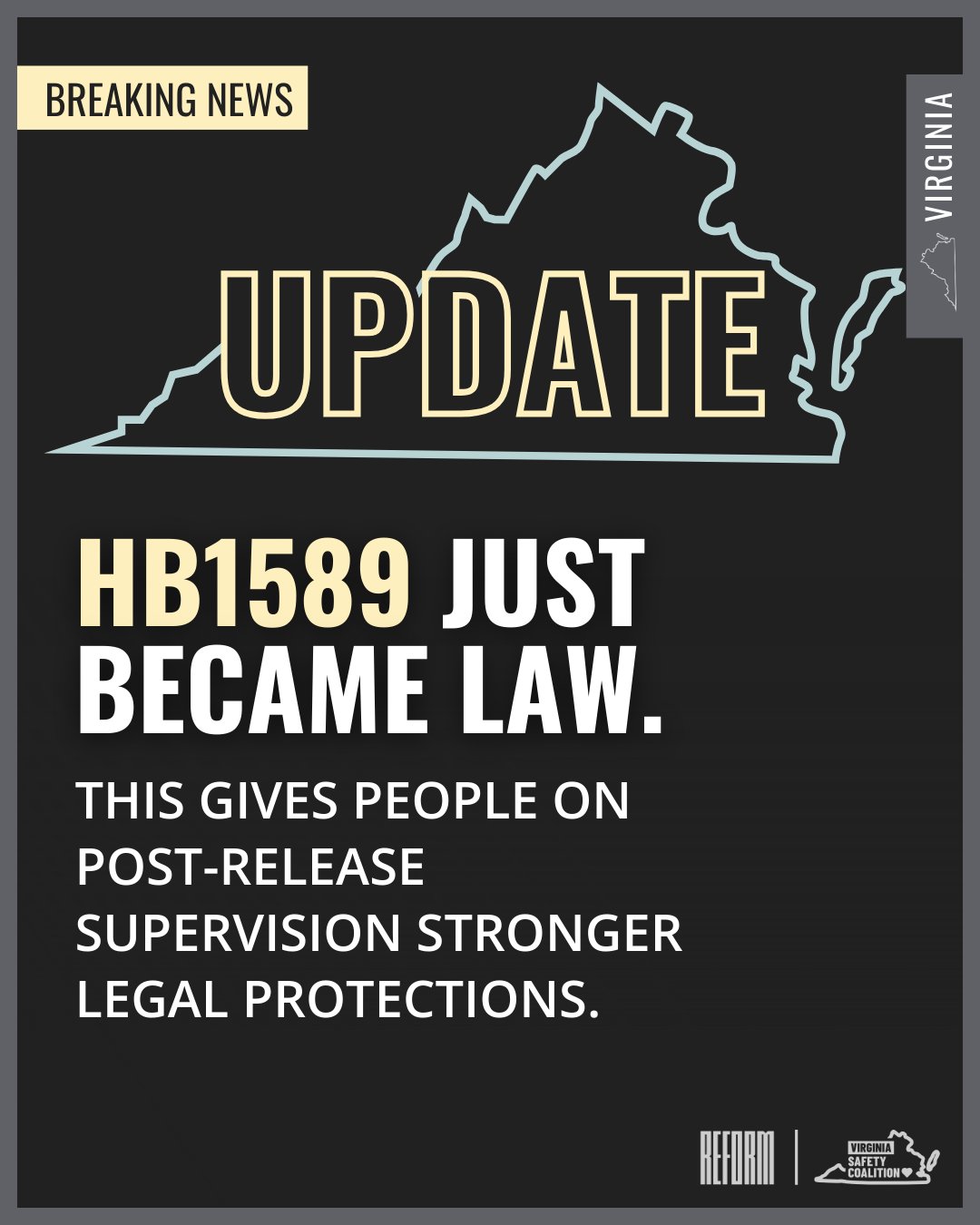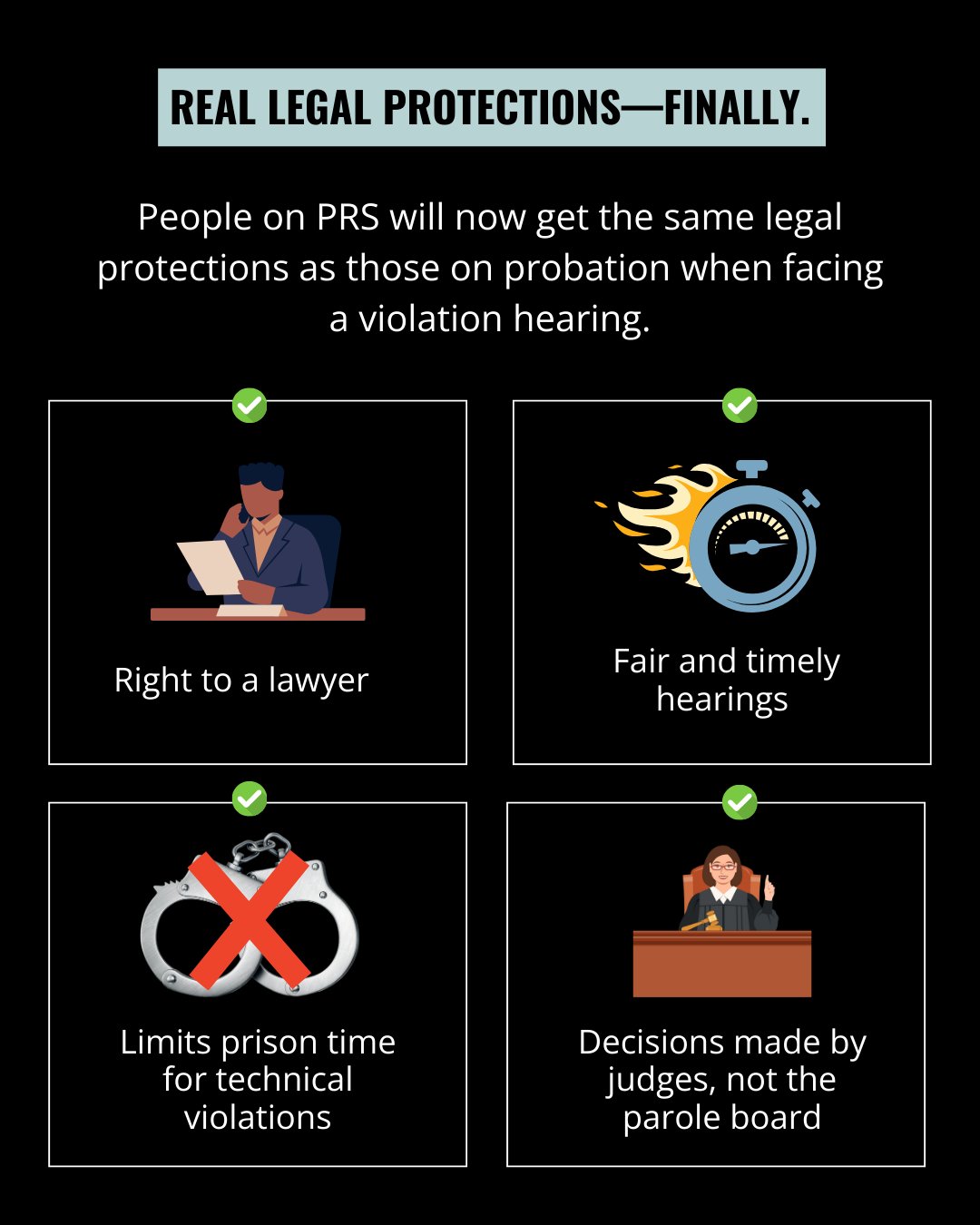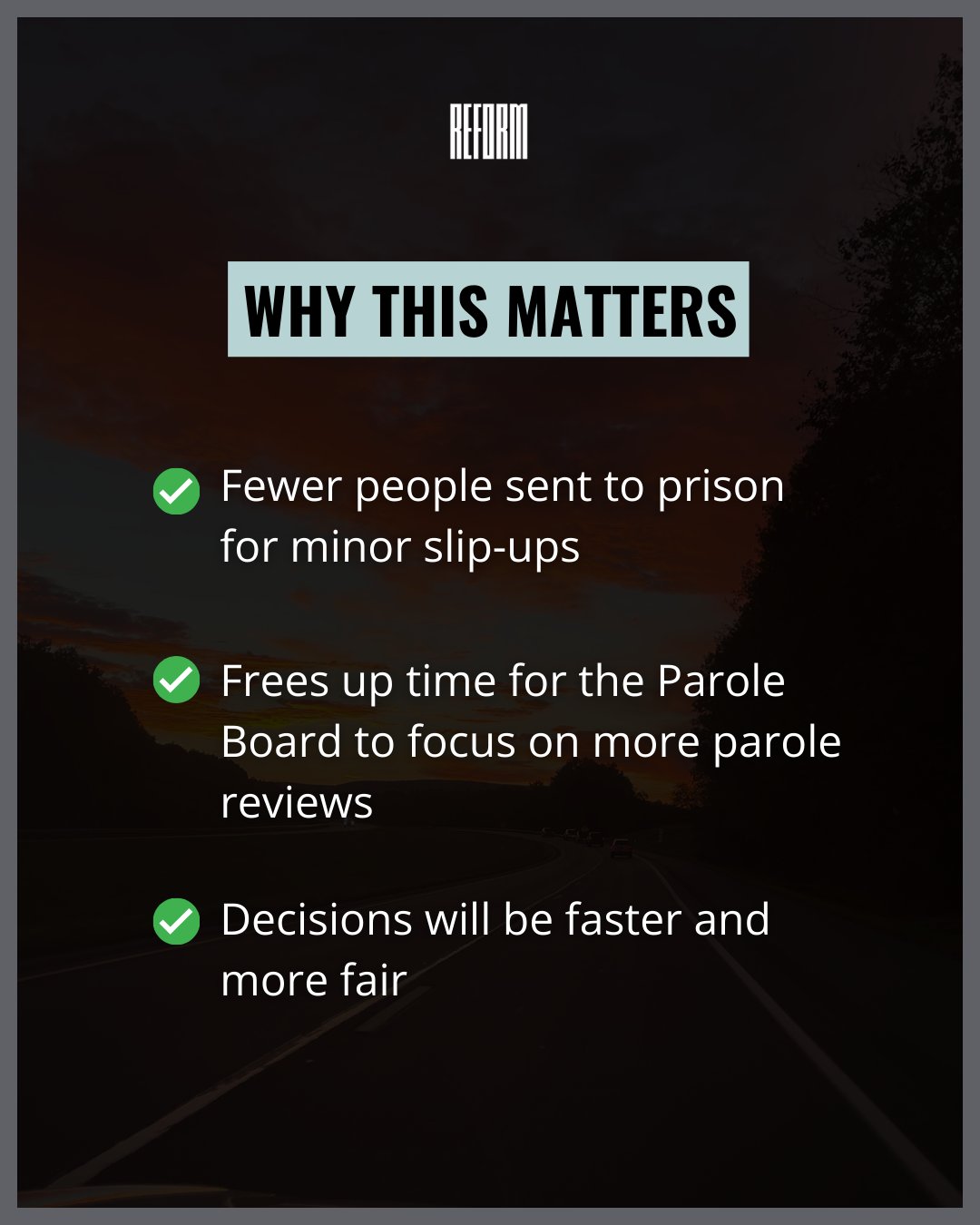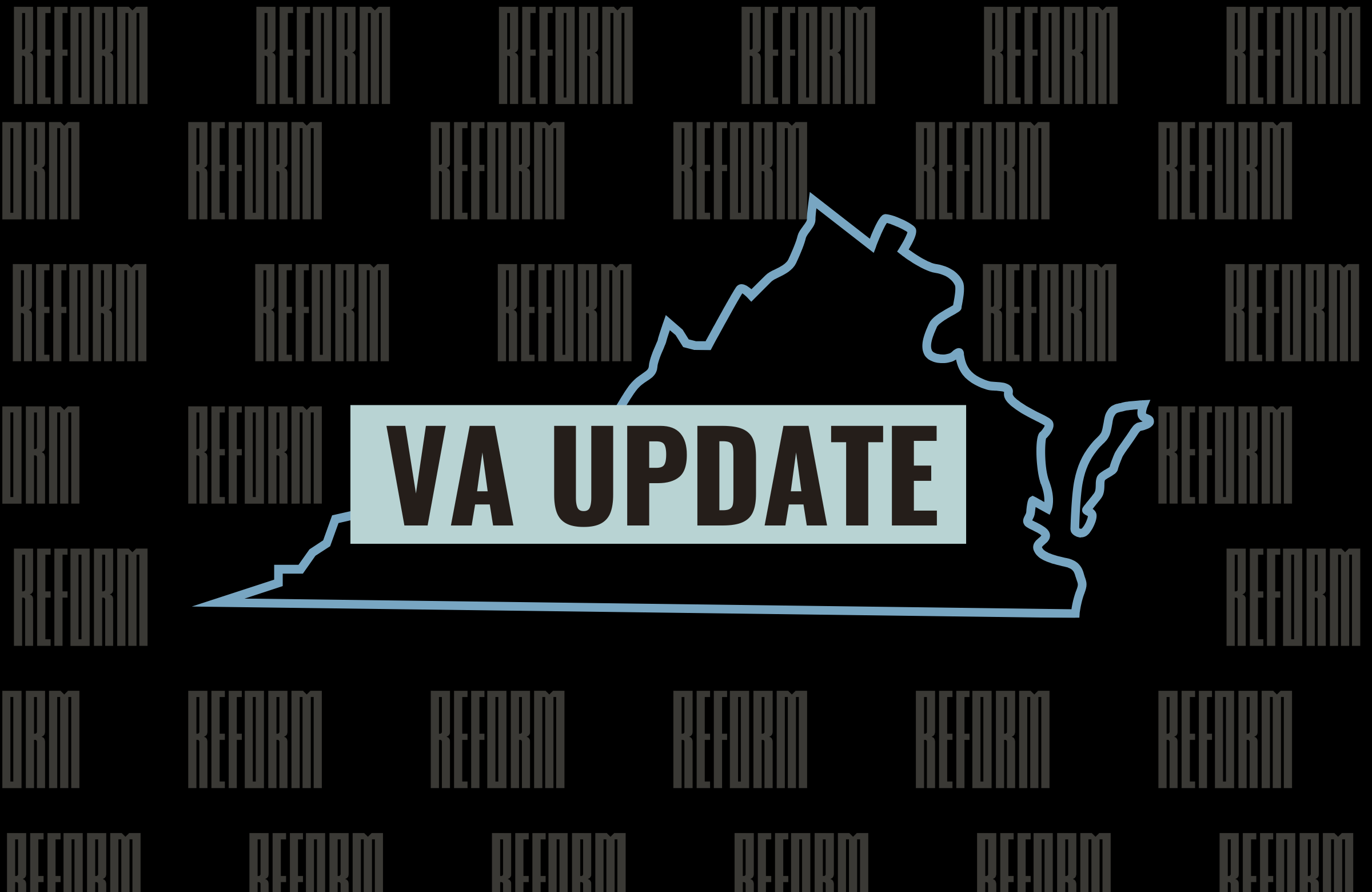On July 1, 2025, Virginia takes a bold step toward a smarter, safer justice system. With the passage and signing of Virginia’s House Bill 1589 (HB 1589) earlier this year, Virginia is transforming an outdated system that too often holds people back into an effective and efficient system that supports public safety and reentry success.

Here’s why this matters. Post-release supervision (PRS) was created in 1995, part of a shift in Virginia, and across the country, toward “tough on crime” sentencing overhauls. PRS was introduced as a method to monitor individuals after incarceration, representing a new form of supervision handed down at sentencing. However, in its attempt to provide a solution, PRS quickly generated its own set of problems. Distinct from probation and parole, PRS existed in a legal gray area, managed entirely by the parole board without judicial oversight.
This structure created serious issues. Because PRS was overseen by the Virginia Parole Board rather than the courts, individuals under this form of supervision were not entitled to legal counsel or a speedy trial if they were accused of violations. As a result, people could languish in jail for months awaiting a hearing before the parole board. At that hearing, they could then face re-incarceration for the full length of their PRS term—potentially up to three years—all without access to a lawyer. This harsh reality applies even for minor technical violations such as missing an appointment with a supervision officer, failing a drug test, violating curfew, leaving the designated travel area without permission, or not maintaining required employment or housing — conditions that are often incredibly challenging to meet for those attempting to reintegrate into society.
This system not only failed those on PRS but also placed significant strain on the Virginia Parole Board. The Board has been stretched increasingly thin over the past few years, with its workload steadily mounting – primarily driven by more than 12,000 individuals becoming eligible for geriatric parole in the coming years, is pushing the system to a breaking point. To effectively evaluate individuals for release amidst this rising demand and fulfill its core mission, the Parole Board urgently needed relief.
HB 1589, which goes into effect on July 1st, offers meaningful relief and protections for individuals on PRS and serves as an important first step in addressing the growing workload of the Virginia Parole Board.

First, it eliminates PRS entirely. It moves more than 600 people currently on PRS, as well as thousands more who will soon be released from prison, onto standard court-supervised probation. This move closes the legal gray area, aligning these cases under a probation system that REFORM Alliance has worked on for years with partners to update through modern, evidence-based practices.
For instance, in 2021, REFORM Alliance joined a coalition with Justice Forward VA to help pass HB 2038. This transformative bill brought probation terms into alignment with evidence-based practices known to best prevent recidivism and instituted a system of proportional responses to technical violations, so people are not sent back to prison for first-time minor mistakes.
And in April 2025, Governor Youngkin signed HB 2252 and SB 936, the probation incentives legislation advanced by legislators on both sides of the aisle. A working group has convened to study the incentives and outline effective processes before it faces a reenactment vote next year, which, if favorable, will t allow people to earn time off their probation term by completing activities proven to reduce recidivism, including: maintaining a job, participating in substance abuse or mental health treatment, furthering their education, and/or maintaining housing and health insurance.
In addition to continuing to encourage evidence-based processes in probation, this new legislation, HB 1589, also strengthens the Parole Board’s operations. It requires the governor to fill Board vacancies within 60 days, allows three-member panels (instead of five-member panels) to decide most cases, imposes term limits on Board members, and requires the governor to act on long-delayed rules for reviewing parole applications for those who have served more than 20 years for crimes committed as a juvenile. These reforms will better equip the Parole Board to handle a growing caseload — especially important now, with the number of those newly eligible for geriatric parole expected to increase by thousands in the coming years.
As with all REFORM-championed legislation, HB 1589 was passed with the support of a broad bipartisan coalition of lawmakers, state officials, and advocacy groups. The bill was introduced by Delegate Wren Williams (R-Patrick) with key support from Senator Russet Perry (D-Loudoun)–along with other lawmakers from both parties. The bill also earned the critical support of the Virginia Parole Board and was signed into law by Governor Glenn Youngkin. Other supporters included: the Office of the Attorney General; the Virginia Department of Corrections; The Humanization Project; and the Campaign for the Fair Sentencing of Youth. Together, this coalition helped get HB 1589 across the finish line, delivering a fairer, more functional supervision system for the Commonwealth.

With the passage of this bill, REFORM has now helped pass 21 bipartisan reforms in 12 states, creating pathways for more than 850,000 people to exit the system. This bill shows how smart, evidence-based solutions can solve problems for all involved. And with the July 1st effective date, we look forward to continuing to work to implement these reforms to ensure its benefits are realized.
